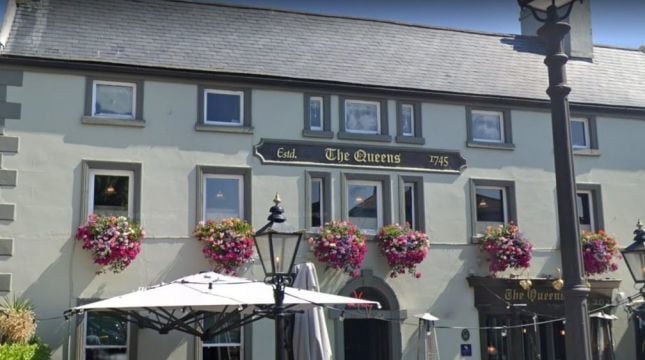Plans for a 30-bedroom guesthouse extension to one of the best-known pubs in the Dublin suburb of Dalkey have been approved, despite opposition to the development from local residents.
An Bord Pleanála has upheld the decision of Dún Laoghaire-Rathdown County Council to grant planning permission for the development of guest accommodation at the rear of the Queen’s Pub on Castle Street in Dalkey.
The board rejected appeals taken by the Dalkey Community Council as well as a group of residents from the adjoining White’s Villas against the ruling by the local authority.
The proposed development over two, two-storey connected blocks is planned by East Coast Heritage after the landmark pub, which is a protected structure dating from 1745, was bought by hoteliers, Ray Byrne and Eoin Doyle for €3.5 million in 2021.
The previous owner, former AIB chief executive and one-time Aer Lingus chairperson, Tom Mulcahy closed the pub in 2020 after 17 years operating the business due to his retirement after the Covid-19 pandemic forced it to close its doors.
Mr Byrne – who also owns a number of businesses in the hospitality sector including the Eccles Hotel in Glengarriff, Co Cork – said he hoped the development at the Queen’s would provide 30 full-time jobs.
Consultants for East Coast Heritage said the operators of the pub had significant experience in ownership and management of pubs, restaurants and accommodation services in Dublin and throughout the country.
They also pointed out that there are no hotel or guesthouses located in Dalkey in the “historic and bustling coastal town with a strong national and international reputation for cultural history, hospitality and tourist interest.”
Subject to compliance with a number of planning conditions, An Bord Pleanála said the proposed extension to the Queen’s would not seriously injure the residential or visual amenities of the area.
One of the conditions is that the new buildings will be used exclusively for guest accommodation or short-term lettings directly connected with the use of the existing pub and restaurant.
In its appeal, Dalkey Community Council said that while it welcomed the proposed development at the Queen’s due to the town’s lack of guest accommodation, it expressed concern about its “overbearing nature” on adjacent homes.
The council’s chairperson, Susan McDonnell, said the proposal represented “an overdevelopment of the site” which would result in several nearby homes having reduced or no sunlight for much of the day.
Dr McDonnell recommended that any new building should be reduced to a one-storey development in order to reduce the impact on neighbours of the pub in White’s Villas.
“Any new development should not result in the reduction in the standard of living of those residents already living in the vicinity,” said Dr McDonnell.
The Dalkey Community Council also expressed concern about inadequate provision for deliveries and waste collection and the development's negative impact on the town’s architectural conservation area.
It also questioned the developer’s justification for the exclusion of any guest parking given parking was already problematic in the centre of Dalkey with very limited on-street spaces.
In a separate appeal, a group of residents of White’s Villas, claimed the development would have “a profound and negative impact” on their homes including in relation to noise which was already an issue due to the pub’s beer garden which had been the subject of an enforcement notice.
They also raised concerns about the impact of the development on parking in the area with the planned removal of the pub’s existing car park to facilitate the construction of guest accommodation.
However, East Coast Heritage pointed out that the Queen’s was originally a hotel so that its proposed guesthouse development was compatible with its original function.
The company, who claimed it had received considerable local support for the proposed accommodation, said it had significant experience in the development of hotels.
It added that the project was subject to a very detailed assessment by council planners with all issues examined prior to the local authority’s decision to grant it planning permission.
A planning inspector with An Bord Pleanála concluded that the extension had been carefully designed to respond to its town centre location and surrounding buildings.
The inspector said the guesthouse accommodation may also be less dense and visually obtrusive than other types of development that could have been permitted on the site.
While the new buildings would have some overbearing impact, he claimed it fell within acceptable boundaries for a town centre location.







